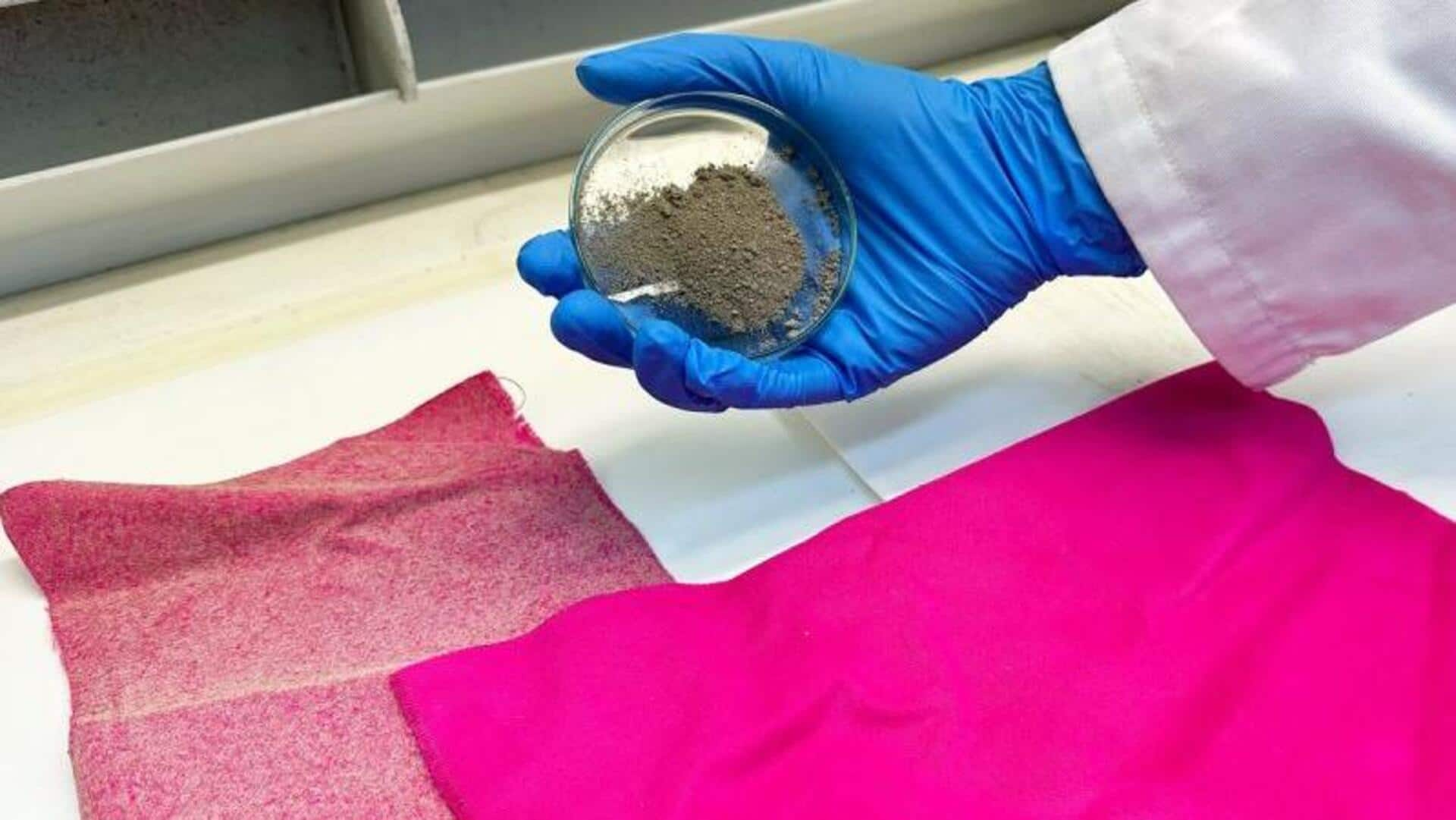
New chalk-based fabric coating offers relief from scorching heat
What's the story
A team of scientists at the University of Massachusetts (UMass) Amherst has developed a chalk-based coating for fabrics, that can significantly lower body temperature. This innovative solution was tested in extreme summer conditions, and found to decrease the temperature under clothing by up to 8°F compared to ambient air, and by a remarkable 15°F when compared with untreated fabrics. The research is part of broader efforts to combat rising global temperatures due to climate change.
Eco-friendly innovation
An eco-friendly solution to heat
The chalk-based coating is an eco-friendly solution designed to combat the health risks associated with extreme heat, such as heat exhaustion and potentially fatal heat stroke. The UMass team was inspired by traditional limestone-based plasters used in hot climates to cool homes. They applied this concept by coating fabric tiles with calcium carbonate particles, the primary component in limestone and chalk.
Functionality
How does the chalk-based coating work?
The chalk-based coating functions by reflecting the Sun's energy back into the atmosphere and allowing natural body heat to escape. "We start with your cotton T-shirt...and we just apply this coating on either one or both faces of the fabric," explained Trisha L. Andrew, a chemist and materials scientist at UMass. She further clarified that "the coating is entirely surface level. It does not penetrate or change the cotton fibers."
Versatility
A versatile and durable solution
The chalk-based coating can be applied to almost any commercially available fabric and is machine washable. Tests have shown that repeated washings do not remove the coating from the underlying materials. "Without any power input, we're able to reduce how hot a person feels, which could be a valuable resource where people are struggling to stay cool in extremely hot environments," stated Evan Patamia, a graduate student at UMass who contributed to the innovation.
Comparison
Chalk-based coating vs. previous cooling fabric designs
Unlike previous cooling fabric designs that often involved rigid structures, complex manufacturing processes, and electrical components, the chalk-based coating is a simpler and more comfortable solution. It represents a growing body of research aimed at finding cheaper, more comfortable, and scalable alternatives as the threat of extreme heat increases worldwide. Scientists at RMIT University in Melbourne have also explored similar concepts using nanodiamonds, to coat cotton fabric resulting in a temperature drop of up to 5.4°F compared to untreated cotton.